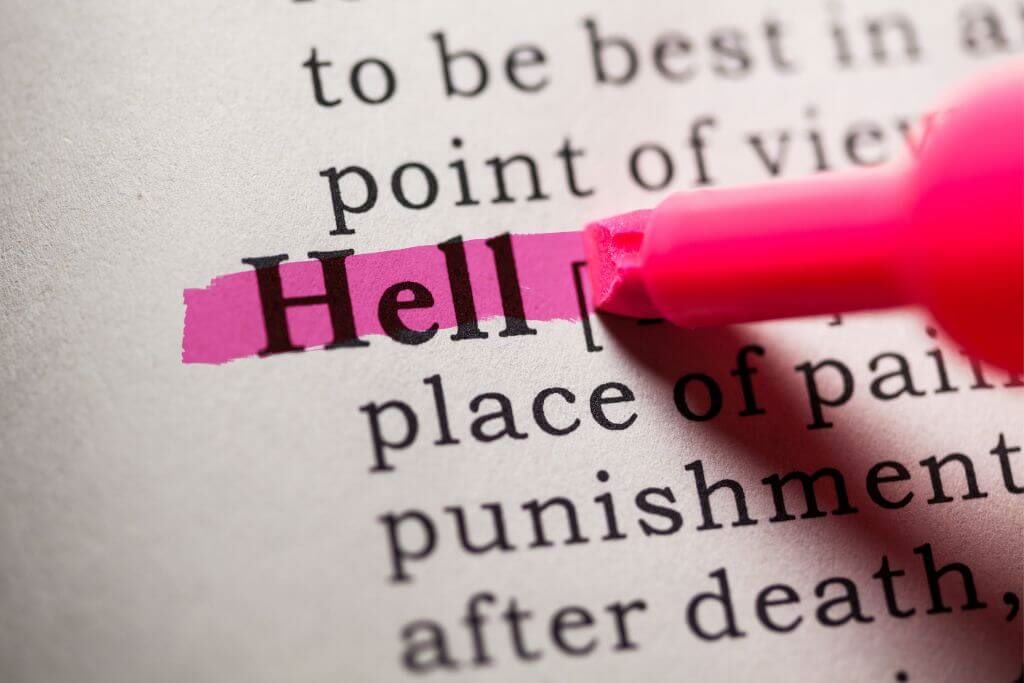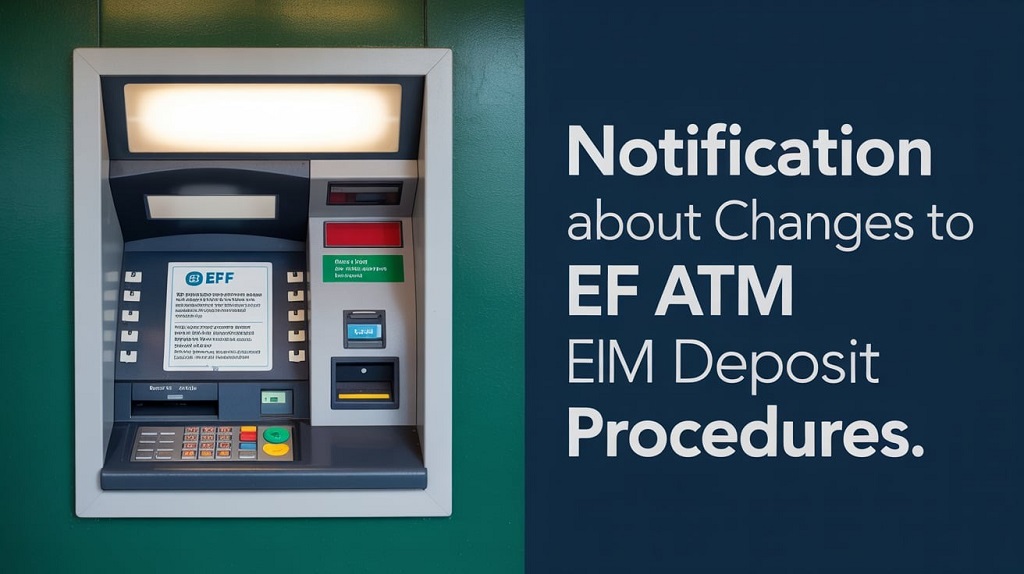The word “hell” can often be a polarizing topic that elicits strong and varied reactions from people. While some might view it as a profanity and inappropriate for polite conversation, others consider it to be a significant religious concept. The question of is hell a bad word that should be avoided is a topic of debate that has valid arguments on both sides. Those who find it objectionable may argue that it is a word that carries negative connotations and may offend some people.
A Complex Religious History
The modern English word “hell” traces back to Old English, Old Norse, and Old German words originally meaning “to conceal” or “to cover.” Over time, pre-Christian Germanic and Norse mythologies developed rich afterlife beliefs, including varied visions of the underworld that inspired later Christian notions of hell.
The Hebrew Bible and New Testament occasionally use the word “hell” to translate terms linked to the abode of the dead, like the Hebrew Sheol and Greek Hades. But biblical references to hell as a place of punishment emerge in the intertestamental and New Testament periods, reflecting influences from Hellenistic religions and Zoroastrianism.
Theologies of divine judgment and hell solidified in the Patristic era and Middle Ages, with thinkers like Augustine elaborating extensively on hell’s pains. Artistic depictions of hell, like Dante’s Inferno, also shaped popular understandings of hell as a terrifying, fiery realm of endless torment. Hell remains integral to many Christian denominations’ doctrines today as the destiny for those who reject God’s grace.
This complex, evolving religious history shows “hell” is not a simple or static concept. It bears nuanced meaning shaped by diverse cultural and theological influences over centuries.
Hell as Profanity
Despite this sophisticated history, “hell” is often viewed as profanity in modern society. The Oxford English Dictionary notes uses of “hell” for emphasis or to express anger rather than referencing the religious place date back to at least the 1600s. Today, “hell” frequently appears on lists of banned or inappropriate language. Many parents discourage children from saying it. Broadcasters censor it. Some Christians avoid saying it to prevent taking the Lord’s name in vain.
Several factors likely contribute to this perception of “hell” as profanity:
- Religious origins – Although “hell” has secular uses, its religious connotations still make it somewhat taboo in polite contexts.
- Sound and meaning – The harsh sound and imagery of eternal torment add a dramatic, visceral edge to “hell” that heightens its effect as a profanity.
- Rebelliousness – Using taboo words like “hell” provides a subtle sense of defiance, making it appealing for emphasizing strong emotions.
- Alternatives exist – Words like “darn” and “heck” allow conveying meaning without religious offense, making “hell” easily avoidable.
So while “hell” has a complex history, these practical factors shape its perception as a profanity in casual conversation today.
Arguments Against Saying “Hell”
Are there good reasons to avoid saying “hell” altogether? Some common arguments include:
It’s Offensive and Hurtful
For many people, especially devout Christians and members of other faiths, hearing others say “hell” casually can be upsetting or offensive, bordering on blasphemy. They believe “hell” should be reserved for solemn discussion, not tossed around lightly. Saying “hell” risks needlessly hurting others.
It Devalues Serious Theology
Using “hell” as an intensifier or profanity detaches it from weighty theological meaning and makes light of the reality of divine judgment. This devalues and demeans centuries of religious thought surrounding hell.
It Sets a Bad Example
When adults frequently say “hell,” it signals to children that it’s acceptable language and encourages them to pick it up. This can conflict with parents’ attempts to set standards of appropriate speech.
It Shows Disrespect for Others’ Values
Even non-religious people should consider how certain words may go against others’ beliefs. Freely saying “hell” demonstrates disregard for the culture and values of those who seek to honor its religious significance.
It Offends Enough to Avoid
Regardless of one’s personal beliefs, the fact remains that many still find “hell” offensive. Knowing its effect on others provides reason enough to choose other words.
These arguments thoughtfully explain why actively avoiding the word “hell” shows consideration and respect for others.
Arguments for Saying “Hell”
Despite taboos surrounding it, are there times when saying “hell” might be acceptable or even appropriate? Some counterarguments include:
It Has Multiple Uses
“Hell” functions in language distinct from its religious meanings. It serves as an intensifier (“scared hell-less”), emphasizes emotions (“What the hell!”), and communicates general contempt (“Hell no!”). These usage contexts differ drastically from discussing theology.
It’s Not Necessarily Blasphemous
Saying “hell” outside of religious contexts need not equate to intentional blasphemy or trivializing sacred concepts. For many, it’s just a habitual figure of speech picked up from societal norms. Their intent is not malicious mockery.
Its Impact Depends on Context
A friendly “Oh, hell no!” among peers bears little resemblance to invoking hell’s torments as a malicious curse. Situation and tone matter greatly in how objectionable an utterance seems. Casual uses often hold little deep meaning.
Policing Language Unduly Limits Expression
A free society values each person’s prerogative to speak freely. Well-intended calls to completely ban words quickly become unreasonable restrictions on individual liberties of expression.
It’s Needed to Convey Strong Feeling
Without profanity, language loses some ability to emphasize sentiments. Ruling out words like “hell” means losing a valuable tool for conveying the full strength of an emotion that a religiously-neutral term can’t adequately capture.
Speakers Can’t Control All Interpretation
Try as one might to speak inoffensively, listeners project their own judgments and meanings. Short of total silence, no words guarantee avoiding all possibility of offense. An inescapable gray area exists.
By recognizing multiple valid perspectives, these arguments thoughtfully defend saying “hell” in appropriate contexts as a legitimate use of language.
Navigating a Nuanced Issue
The debate over whether “hell” is an intrinsically bad word reveals many gray areas. Context and intent matter greatly. Certain uses show clear disrespect, while others employ “hell” as merely a common speech pattern with no religious slight intended.
Rather than issue definitive verdicts on whether “hell” is universally acceptable or unacceptable, it may be most helpful to offer guidance on navigating this nuanced issue with care:
- Use discretion when children are present or when conversing with the strongly devout. Avoid flippant uses of “hell” in these sensitive situations.
- Consider your setting, audience and tone. A joking “oh, hell no!” between friends likely causes little offense. Screaming “go to hell!” maliciously in a public place does.
- Reflect on your own intentions and values. Do you say “hell” out of a desire to provoke or out of habit? Being mindful of motivation and effects on others is worthwhile.
- Grant grace to others’ speech patterns. Assume positive intent until proven otherwise. Recognize that language habits form over a lifetime and can be hard to break.
- Make judicious use of “profanity privileges.” Avoid overuse of emphatic words like “hell” which can cause the desired punch to fade. Employ them strategically in situations that merit emphasizing.
No universal standard dictates whether “hell” is intrinsically bad. Setting considerate guidelines for one’s own speech and giving others the benefit of the doubt goes a long way in thoughtfully navigating this complex issue. With care for others’ sensibilities, “hell” can retain its rhetorical power without devolving into thoughtless profanity.
Recommendations for Appropriate Use
Rather than completely avoid saying “hell,” here are some recommendations from linguists and sociolinguists on when use of this word may be more or less appropriate:
Casual Uses Among Peers
- Using “hell” as an intensifier or for emphasis (i.e. “scared hell-less,” “easy as hell”) in relaxed conversation with friends who aren’t offended by profanity.
- Saying “Oh hell no” or “What the hell” in informal settings to express surprise, excitement, disbelief, etc.
- Employing the term in figurative phrases like “a hell of a good time” or “all hell broke loose” that don’t literally reference the afterlife.
Strong Emotion or Pain
- Crying “Oh hell!” as a spontaneous reaction to sudden physical pain, shock, anger or frustration.
- Shouting “Hell!” to vent anger or convey the intensity of an experience is generally more acceptable than directing the word at someone.
- Using “hell” to intensify descriptions of unpleasant experiences conveys how bad something feels without targeting others.
Humor That Avoids Malice
- Jokes or humor that treat hell in an abstract, silly fashion (“when hell freezes over”) rather than seriously are less likely to offend.
- Comic hyperbole like “I about laughed my ass off” that isn’t meant literally is generally inoffensive.
Reasonable Avoidance
- Avoid flippant use around those likely to be offended by religious profanity (devoutly religious, young children).
- Take care to avoid aggressive use (“go to hell”), especially when said with malicious intent to condemn or insult.
- Excessive use that reduces the word’s emphatic value. Opting for a more tasteful term often improves discourse.
With some care and consideration of context, “hell” can be used appropriately for emphasis and humor without thoughtless profanity or offense.
Religious Figures’ Perspectives
Many religious traditions address proper speech and present interesting perspectives on the debate surrounding the word “hell.” Here are some notable thoughts:
Pope Francis has criticized overuse of the word “hell,” stating: “This way of speaking comes from a mythology that is far from the spirit of the gospel.” Yet he affirms hell’s existence, once saying unrepentant sinners risk going there. Overall, he discourages casual usage while still upholding the theological concept.
The Dalai Lama represents a Buddhist tradition that rejects notions of divine judgment or hell as permanent destinations. He explains hell as a mental state of guilt one creates for oneself through negative actions. Saying “hell” may thus only condemn oneself to further unhappiness.
Meister Eckhart, a medieval Christian mystic, provocatively wrote: “I pray God rid me of God” and “I am as ready to hear the devil preach as St. Thomas.” He challenges fixating on images of God as judge and hell as literal places, focusing more on one’s internal spiritual state.
Jonathan Edwards, the influential 18th century American theologian, is renowned for vivid hellfire-and-brimstone sermons warning unrepentant sinners of damnation’s horrors. Yet accounts suggest Edwards disliked sensationalist language and personally exemplified quiet Christian piety.
These diverse perspectives illustrate religion’s nuanced approaches to the word “hell” and its underlying concepts. Theology often defies simplistic verdicts on whether “hell” is absolutely wrong or right to say. Context and intention remain key.
Impact on Children
Parents inevitably confront questions about how to address concepts like hell when speaking with children. Several considerations come into play:
Cognitive Development Stages
A very young child lacks the abstract reasoning skills to make sense of hell as a metaphysical place of punishment. But around ages 7-12, children can start grasping these complex theological notions, for better or worse.
Family Religious Beliefs
Believers wanting to pass on their faith’s teachings may introduce their child to hell at the age culturally deemed appropriate. Non-religious or progressive believers might avoid the topic altogether with kids.
Potential for Fear
Vivid descriptions of hellfire can instill deep fears and religious anxiety in children. Especially worrisome are depictions of hell targeting non-believers, which may cause distrust of those with different beliefs. More metaphorical explanations of hell as being apart from God’s love may be constructive.
Setting an Example
A parent freely saying “hell” teaches children the word is normal and acceptable, making it likely they will adopt the habit. Modeling judicious speech habits helps guide kids.
Alternative Vocabulary
Rather than prohibiting words, parents might try teaching children different vocabulary to express emotions that doesn’t involve questionable language.
With thoughtfulness, parents can determine if, when and how to talk about theological concepts like hell in a way that aligns with their family’s faith tradition and values.
FAQs
Q: Does saying “hell” violate the biblical commandment not to take God’s name in vain?
A: There is debate around this. Some Christians view any frivolous use of “hell” as contravening the commandment. Others argue “hell” functions as a common term in language apart from literally invoking God’s name. Using “hell” to genuinely curse at others would more clearly violate the commandment.
Q: Are some denominations more opposed to saying “hell” than others?
A: Generally speaking, conservative evangelical and fundamentalist denominations take stronger issue with saying “hell” casually than do moderate mainline Protestants, Catholics, or more theologically liberal Christians. Non-Christians and secular people also tend not to be as offended by the term.
Q: Has opposition to the word “hell” increased in modern times?
A: Objections to casual use of religious terminology like “hell” have escalated in postmodern times. Widespread secularization makes blasphemous or sacrilegious language seem more prominent. But use of “hell” for emphasis dates back centuries, showing concerns over propriety are longstanding.
Q: Would avoiding “hell” qualify as politically correct or “woke” speech policing?
A: Some criticize avoidance of words like “hell” on those grounds. However, choosing not to say a term because it genuinely hurts others differs from refraining due merely to abstract political correctness. Context matters in discerning whether restraint shows consideration or undue censorship.
Q: Is it hypocritical for Christians who believe in hell to object to others saying the word?
A: A reasonable counterargument. Yet one could believe theological concepts like hell are rightly expressed only in sacred contexts, not secular speech. Either way, sensitivity to others’ perspectives on the issue is important for Christians.
In the end
The debate over the appropriateness of saying “hell” has compelling points on each side. Rather than taking an absolute stance, the wisest approach may be showing understanding for multiple perspectives. During a presentation, the significance of body language becomes paramount, as it serves as a non-verbal extension of our true intentions, enabling rich expression while aligning with the principles of thoughtful communication that prioritize motivation and effect over specific vocabulary, all with due consideration for context and kindness toward others’ sensibilities.





